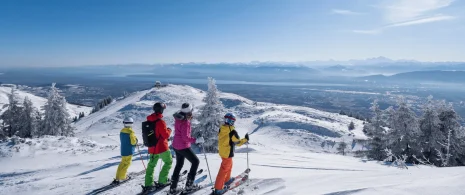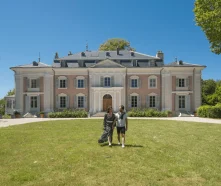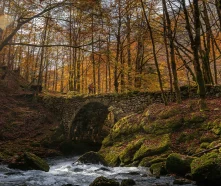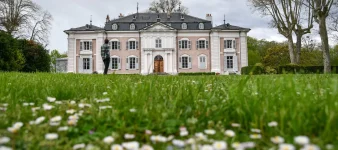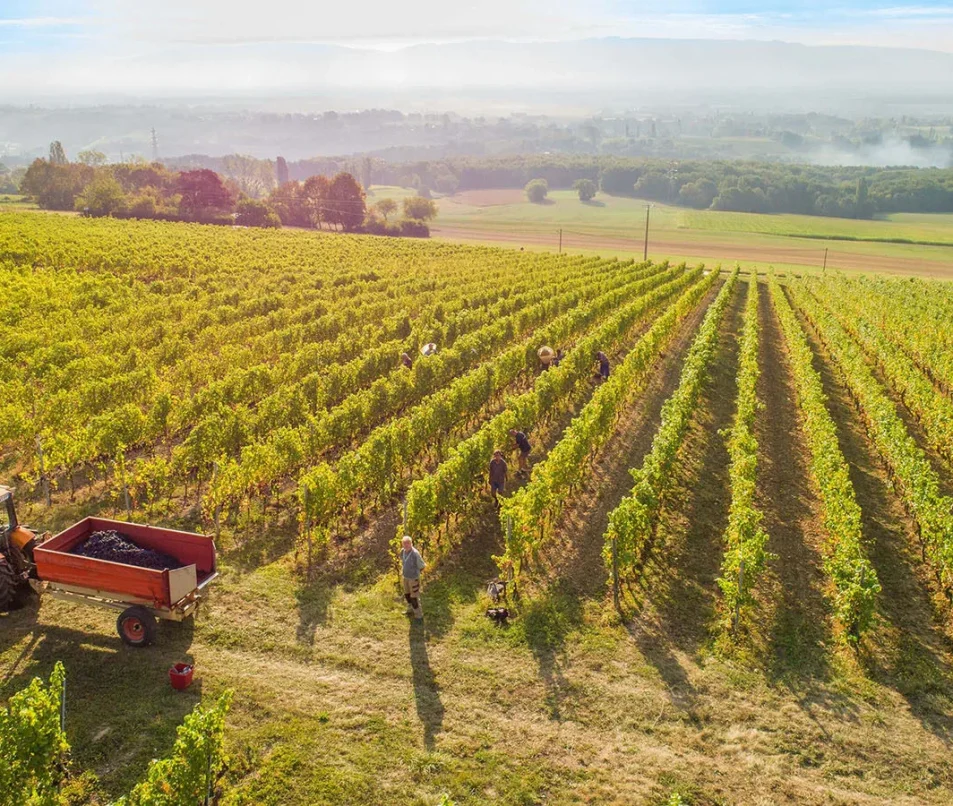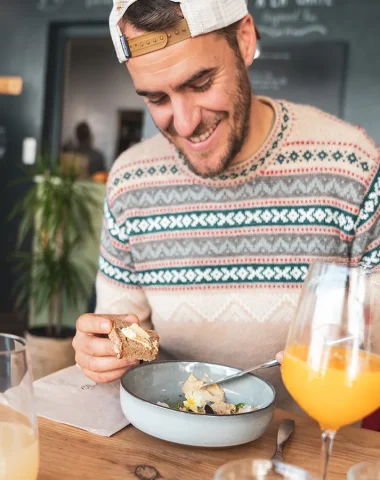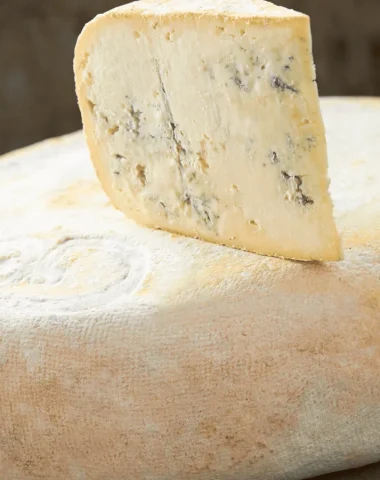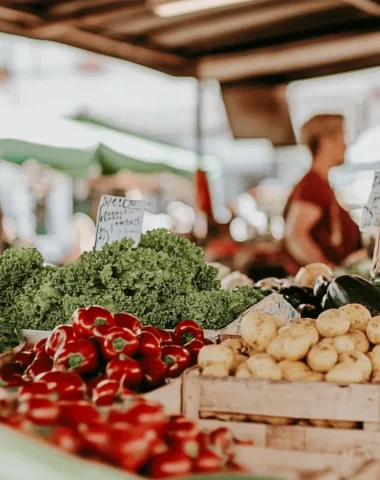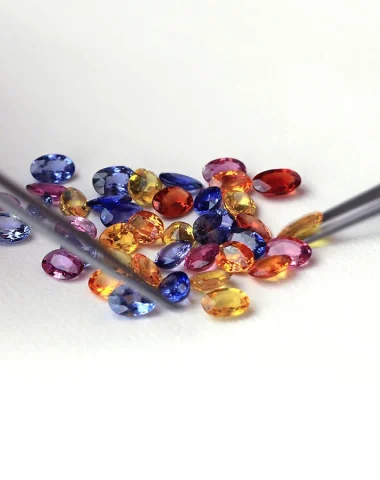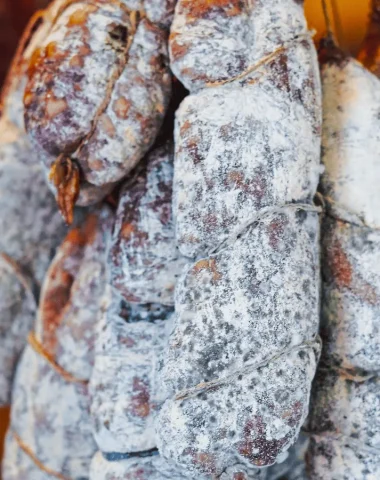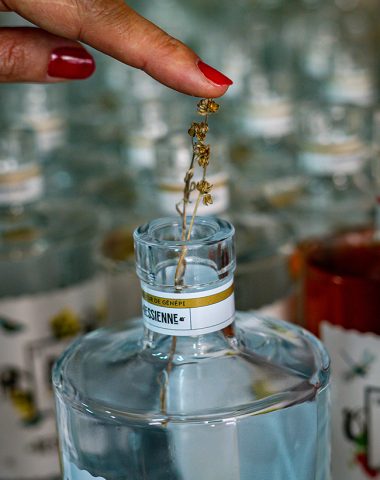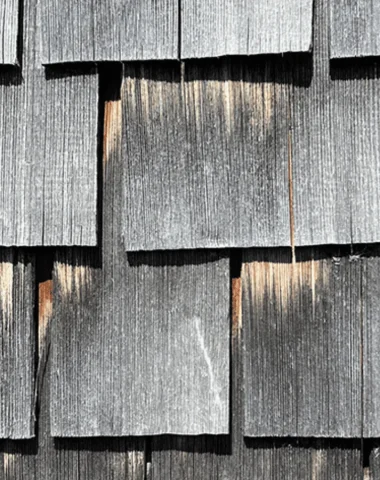Come along with me! Join Frédéric on a tour of the Domaine de Mucelle in Challex, a wine-producing village in the Pays de Gex region.
Frédéric Péricard, who has run the estate since 2000, is originally from the Loire. For 40 years now, he has been a Gessien by adoption. How did he get from his native Loire to the little village of Challex, on the edge of the Ain? His answer: “Through a training course, of course! In 1980, I did a work placement at the Domaine de Mucelle. And that’s where I stayed. There’s no tradition of winegrowing in the family, but he’s always had a passion, first for the vine and then for wine.
A little history
Today, all the grapes are vinified on the estate, but this was not always the case. For several decades after the war, winegrowers from the village and surrounding area took their grapes to the Cave Coopérative in Satigny (Switzerland), which became the Cave de Genève in 1994. This tradition came to an end for Domaine de Mucelle in 2000, as the operation was no longer profitable and there was a need for centralisation.
Something for everyone…
By the way, what wines are made from all these grapes? Red, white, rosé, natural or traditional methods, there’s something for everyone! And it turns out that we’re not the only ones to benefit.
Some bottles have recently found their way onto Lithuanian and even Japanese tables! On this subject, when I ask Frédéric if he can think of any anecdotes, he tells me that not long ago he sold wine from his estate to Japanese people who live in Tokyo, 500 metres from a shop that sells his own bottles!
…And always with respect for nature
Frédéric employs one person on a permanent basis to produce the wine and look after the estate. But in spring and autumn, the estate is in turmoil! From April to May, 5 extra people join them to do the disbudding. And in the autumn, 15 to 20 pairs of hands work for several weeks on the harvest. Disbudding? A word of warning to the most novice among us! This lovely word simply means removing unwanted shoots that are harmful to the rest of the vine, or those that will not produce.
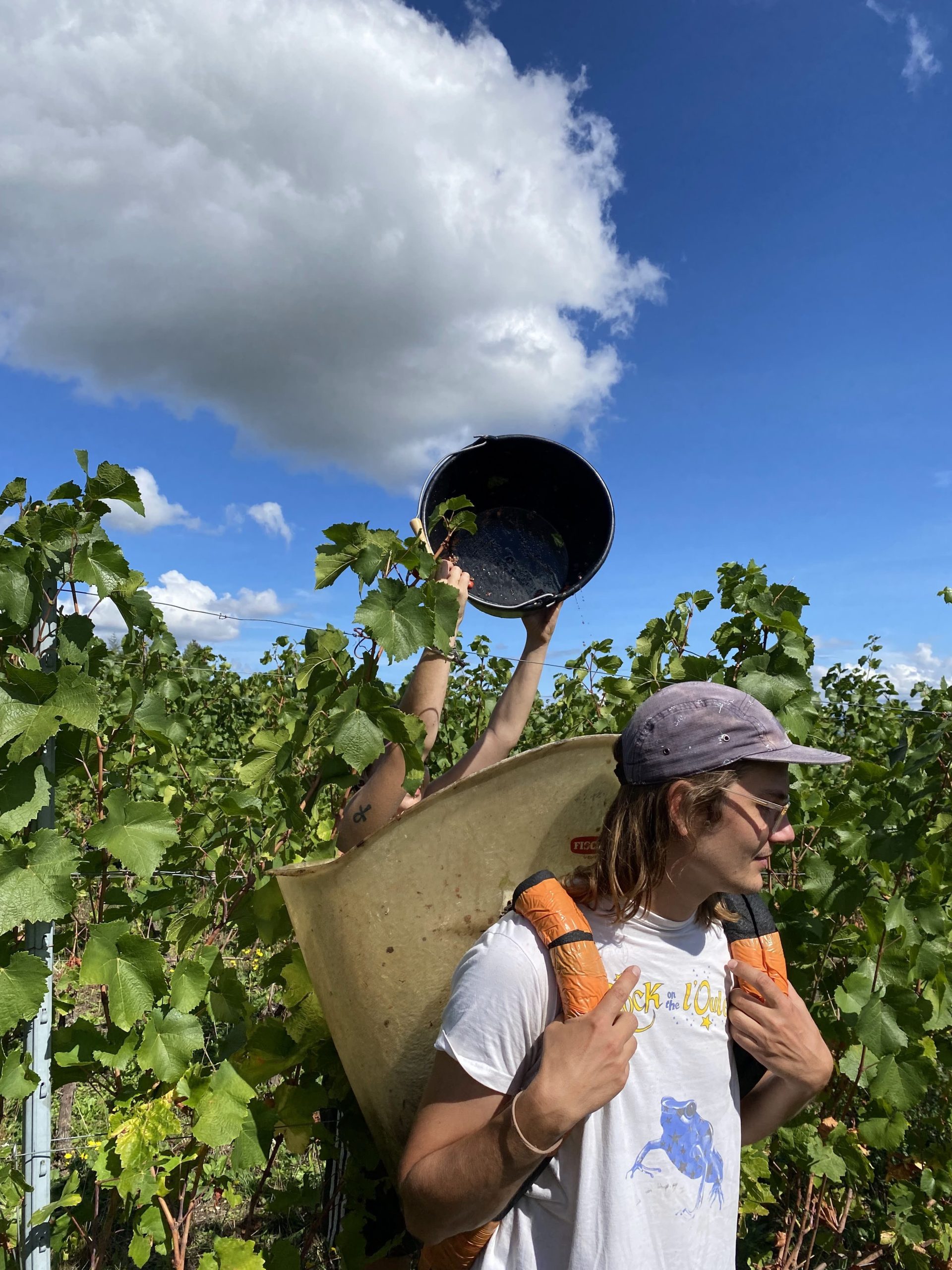
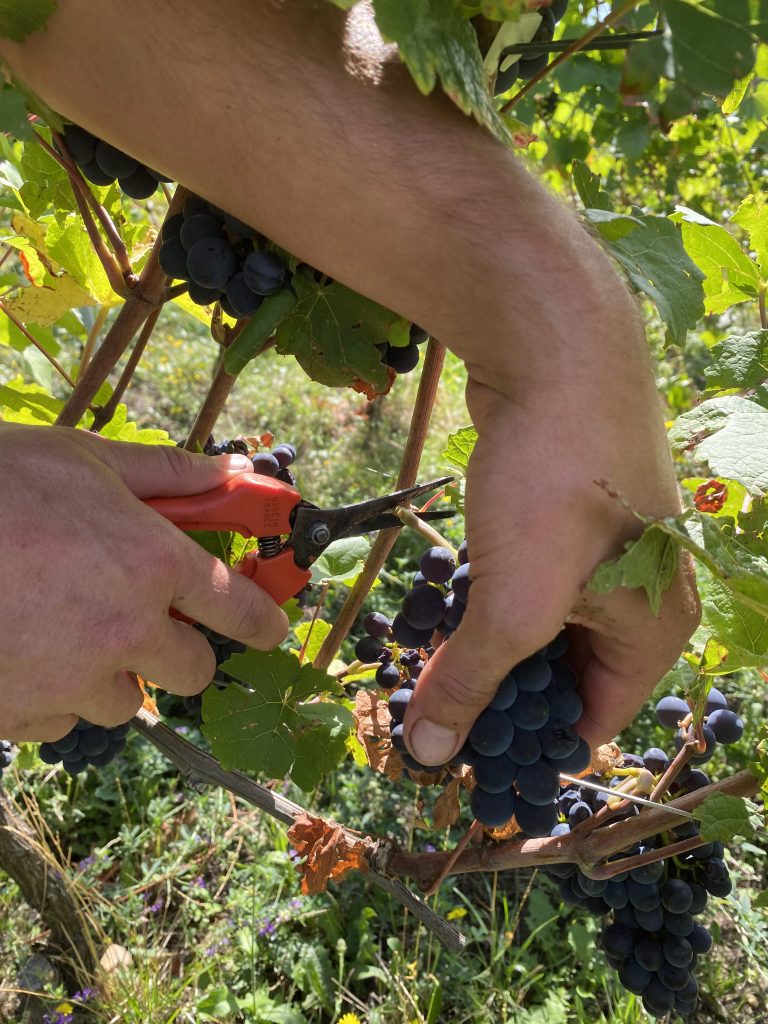
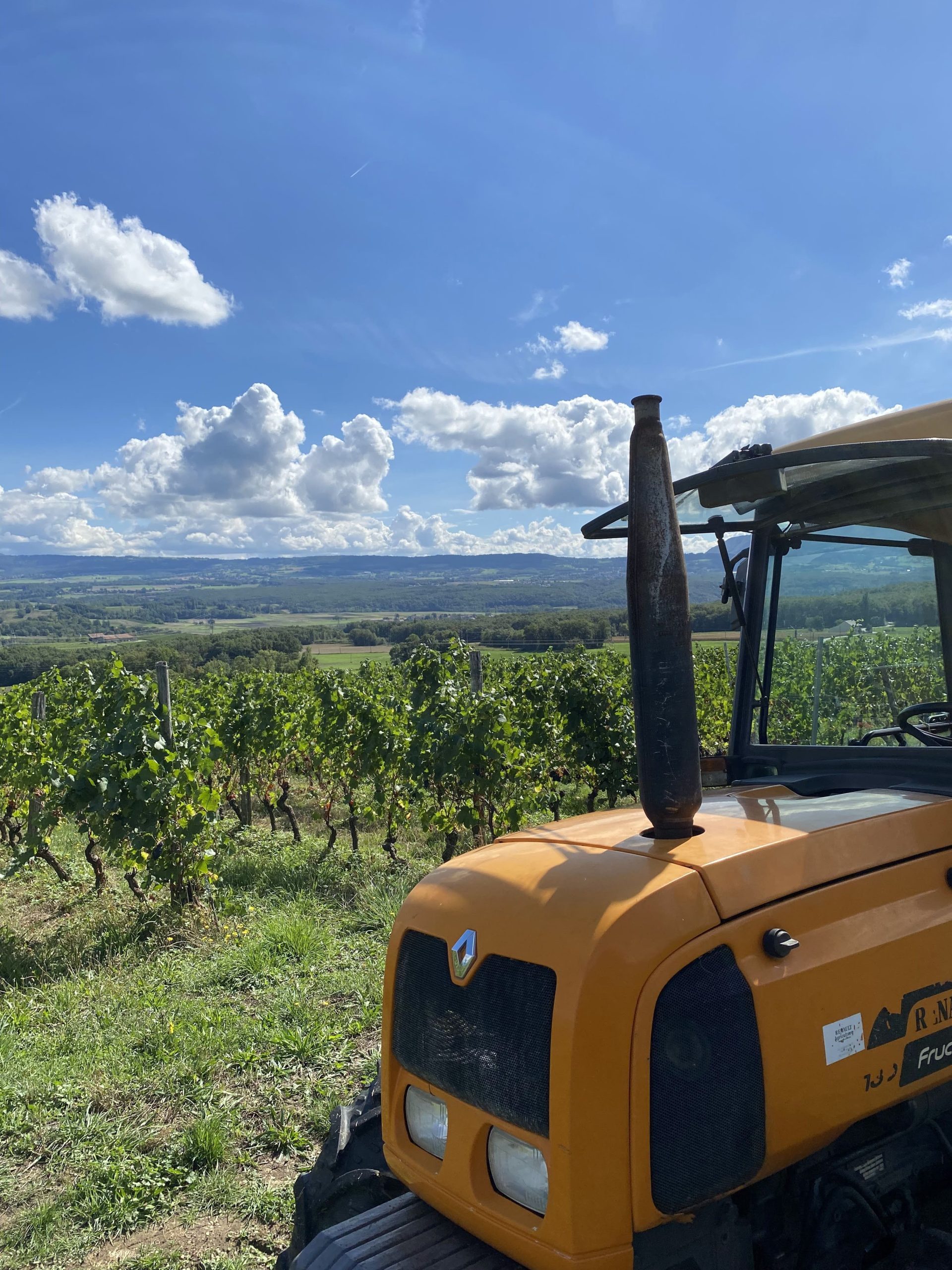
This technique is carried out by hand, with respect for the plant, in line with the organic impetus Frédéric has given the farm since 2000. What triggered him? No, “I’ve always been an environmentalist at heart”, he replies.
Since 2012, the wines have been certified organic, and regular checks do not deny Frédéric’s efforts, year after year. And he doesn’t stop at wine. Part of the estate’s land, previously grazed by cows, is now used to grow cereals, which are also certified: sunflower, rapeseed, wheat and buckwheat are transformed into organic oil and flour. The vines are also treated with Bach flowers and essential oils to protect them from disease. We’d love to be in its shoes!
When do we go?
Your mouth is watering (or rather, your wine is!)? Good news! Open days at the Domaine de Mucelle are organised several times a year. The vineyards even sometimes play host to a jazz concert. Want more? Take an organised tour of the vineyard and cellar, for groups of up to 50 people.
Did you know?
The first mentions of vines in Challex date back to the year 1000. That’s right, a thousand years of wine-growing tradition in Challex! Or rather Chaloiy, Chalosium, Challoes, Chalais, Chalex, the definitive spelling not having been fixed until 1793. Even if today the work of the vine has become rarer, Challex remains proud of this tradition, which can be seen even on its coat of arms, which features a pampre (vine branch decorated with leaves). Moreover, the choice of naming the estate Mucelle is no coincidence, as it is the name of one of the hamlets in the village…
How to get there
480 Route de Mucelle 01630 Challex
Thematics
